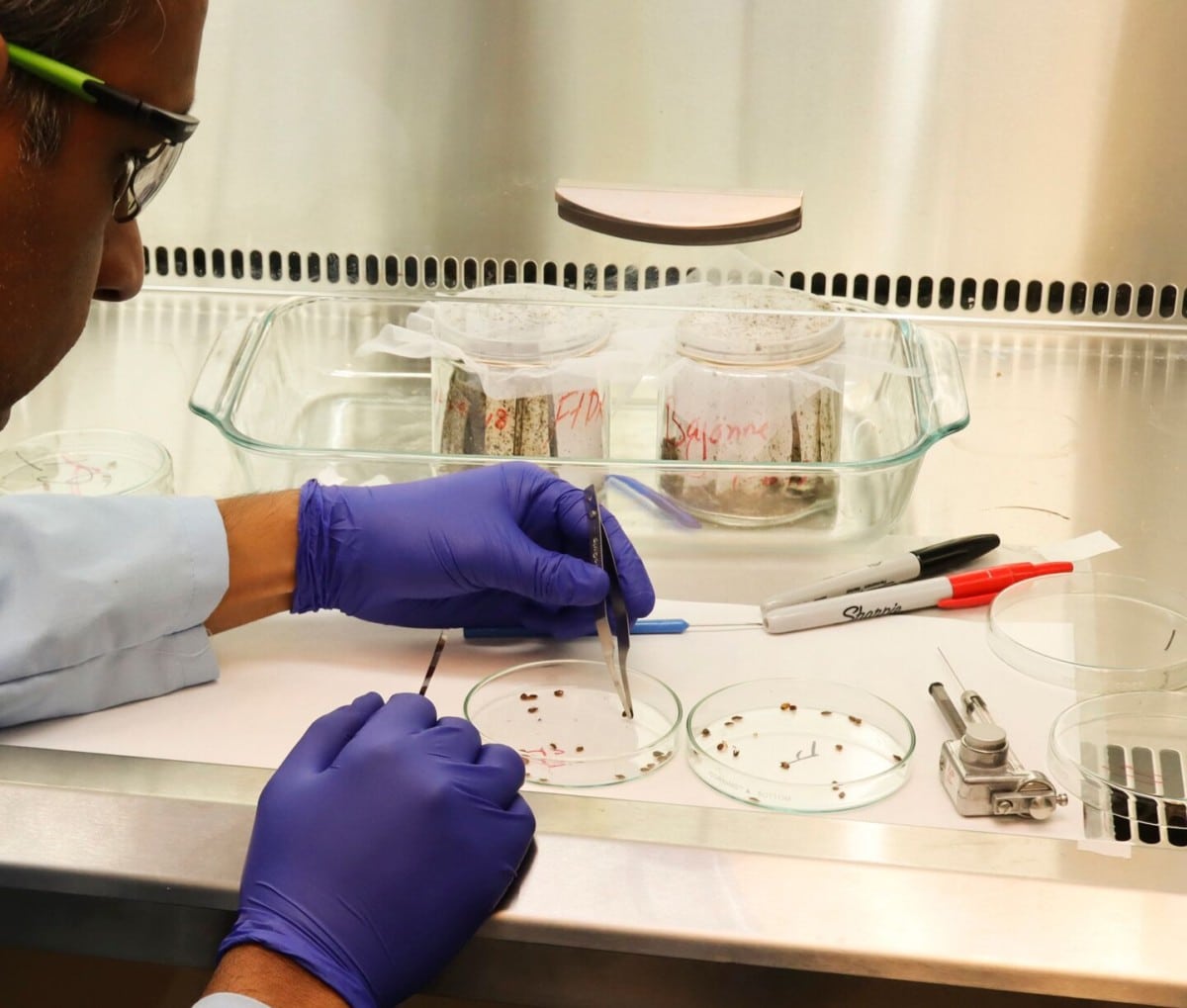“Don’t let the bed bugs bite.” It’s something everyone hears as a child, but those pesky insects could be living on the mattress or in the sheets.
However, bed bugs may soon be a worry of the past. Scientists with the National Center for Natural Products Research at the University of Mississippi School of Pharmacy are searching for a natural remedy to stop the insect from not only biting but growing in rapid numbers.
“In the past few years, the number of bed bug infestations has risen, potentially impacting the hospitality industry,” said Amar Chittiboyina, NCNPR assistant director. “The resources at the NCNPR make it an ideal research center for the discovery of a natural chemical as an insecticide.”
The project is funded through the U.S. Department of Agriculture and the U.S. Department of Defense, the Insect Management Program looks for a natural compound for management of pests affecting soldiers and the public. However, finding that solution is easier said than done, as bed bugs are tough to control, much less eradicate.
Junaid Rehman, a research scientist in the NCNPR, said he works closely with two strains of bed bugs: those that are resistant to insecticides and those that haven’t been exposed to insecticides. Rehman is tasked with the challenge of sorting the tiny bed bugs, which grow to less than one-fourth of an inch in size, by age and making sure each gets its weekly fill of rabbit blood to help maintain the colonies.
Researchers use three delivery methods to test the effectiveness of natural compounds on the bed bugs, Rehman said.
The easiest ones to perform are fumigation and residual methods. In fumigation, the bugs are exposed to the vapor form for 24 hours, while the residual method has the treatment placed on filter paper and the insects are released over it.
The toughest is a topical method, which involves Rehman knocking the insects unconscious with carbon dioxide before applying a drop of the test article on each adult’s back. This process can take up to five hours with 50-60 bed bugs in each treatment for statistical significance.
“In most cases of severe infestation, the only option to eradicate the insects is to discard the furniture,” Rehman said. “To avoid such an expensive operation, we are probing several methods for effective delivery of potential insecticides. At the end of the day, we are looking for natural compounds that are easy to apply in a laboratory setting and in the field. The hardest part is finding a natural compound that will safely and effectively eradicate or control the growth of bed bugs.”
Researchers work in a biosafety lab at the Thad Cochran Research Center where special precautions are taken to prevent the escape of any bugs. Though bed bugs are easily contained in the lab, that’s not the case in public areas. Bed bugs hiding in dark corners and crevices of hotel rooms or other spaces can survive as long as three months without food.
While the insect is not known to transfer diseases, but when an infestation is severe, the bites can cause health concerns.
“We have such unique resources at the NCNPR that we can optimize and convert the knowledge we have into finding a safer solution, as there is currently no easy way to get rid of these bed bugs,” said Ikhlas Khan, NCNPR director. “Having this funding from the USDA helps us to work toward our overall goals.”
As people prepare to travel for the summer, Khan said that public awareness and preemptive measures help in bed bug cases. NCNPR researchers will continue working to make bed bug nightmares a thing of the past.
“If we can come up with a natural compound that inhibits the bed bugs’ growth or alters its life cycle, and the natural compound has a safety profile needed for approval by the EPA as an insecticide, then we achieved our goals,” Chittiboyina said.




